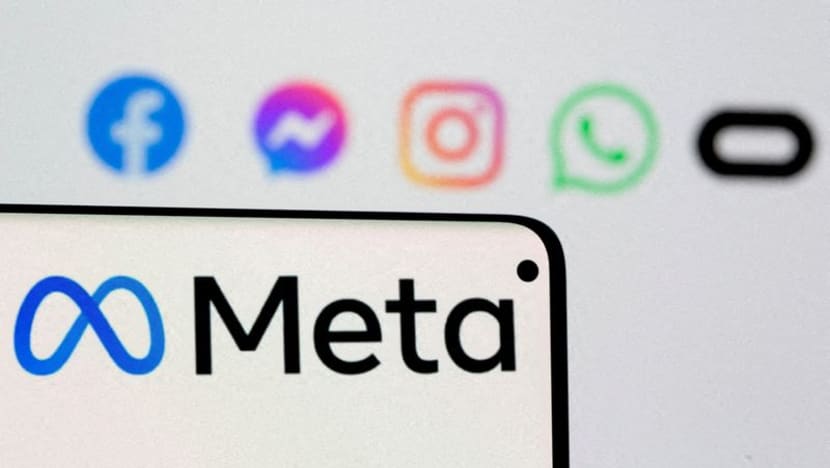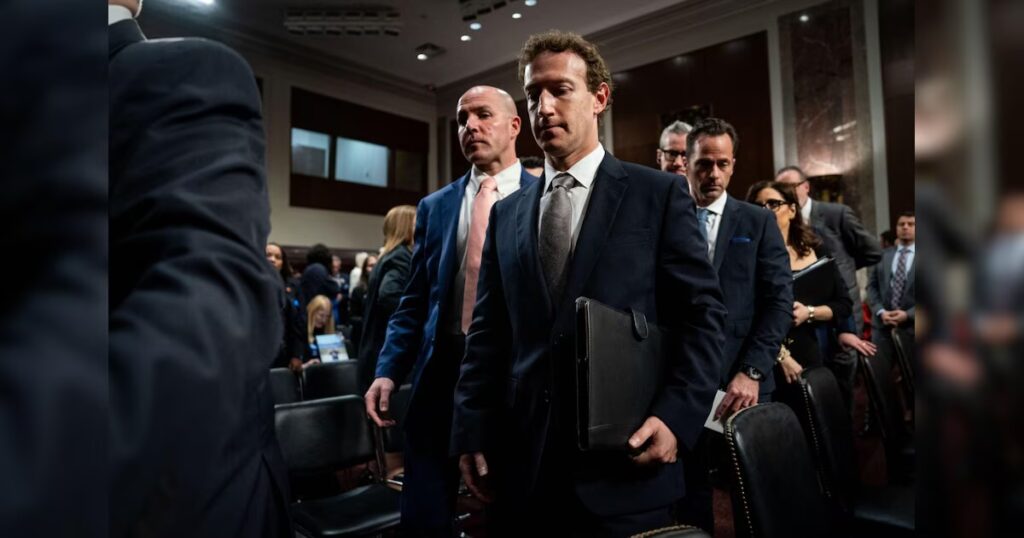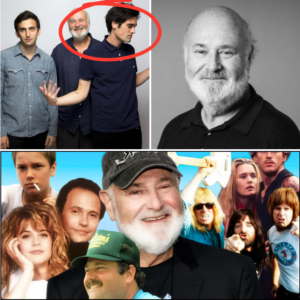
Meta Platforms Inc. is locked in a high-stakes antitrust trial with the Federal Trade Commission (FTC), as regulators seek to dismantle the tech giant’s social media empire by forcing the divestiture of Instagram and WhatsApp. The trial, which began on April 14, 2025, in Washington, D.C., has thrust CEO Mark Zuckerberg into the spotlight, with his testimony defending Meta’s acquisitions as strategic rather than anticompetitive. A YouTube video by TheQuartering, titled “Instagram FTC trial: Zuckerberg DEFENDS Meta ‘buy or bury’ policy: Will he sell Instagram, WhatsApp?” posted on April 16, 2025, amplifies public and industry scrutiny, framing Zuckerberg’s defense as a bold stand against claims that Meta’s “buy or bury” tactics stifled competition. As the trial unfolds, its outcome could reshape the social media landscape, test the Trump administration’s stance on Big Tech, and determine whether Meta must sell its prized assets.
The FTC’s case, Federal Trade Commission v. Meta Platforms, accuses Meta of violating the Sherman Antitrust Act by acquiring Instagram in 2012 for $1 billion and WhatsApp in 2014 for $19 billion to neutralize competitive threats and maintain a monopoly in personal social networking. The FTC cites a 2012 email from Zuckerberg, presented in court, where he wrote that acquiring Instagram would “neutralize a potential competitor,” as reported by Reuters. Instagram, projected to generate $37.13 billion in U.S. ad revenue in 2025, accounts for over half of Meta’s domestic advertising income, per eMarketer, while WhatsApp’s 2 billion daily users bolster Meta’s global reach. A breakup could disrupt Meta’s integrated ecosystem, limit cross-platform features, and erode its $1.3 trillion market value, per Bloomberg.
Zuckerberg’s testimony, spanning three days, has been central to Meta’s defense. On April 14 and 15, he argued that the acquisitions were driven by innovation, not monopolistic intent. “We were doing a build versus buy analysis,” Zuckerberg testified, explaining that Instagram’s superior camera technology outpaced Meta’s own efforts, such as the now-defunct Facebook Camera app. He acknowledged a 2011 email noting Instagram’s rapid growth as a “viable competitor” but emphasized that Meta’s $1 billion investment transformed Instagram into a global powerhouse, benefiting users. Regarding WhatsApp, Zuckerberg admitted Meta’s Messenger app was “not beating” its rival, justifying the $19 billion purchase as a means to enhance user experience, per BBC. Meta’s lawyer, Mark Hansen, reinforced this, arguing that the FTC’s case ignores competition from TikTok, YouTube, and X, with a 17% surge in Instagram usage during TikTok’s January 2025 U.S. outage as evidence.

The FTC, led by attorney Daniel Matheson, has painted Meta’s strategy as predatory, alleging that Zuckerberg’s “buy or bury” approach—either acquiring rivals or copying their features—stifled innovation and harmed consumers. A 2008 email where Zuckerberg wrote, “It is better to buy than compete,” has been a cornerstone of the FTC’s case, per The Guardian. Matheson also highlighted a 2018 memo where Zuckerberg considered preemptively spinning off Instagram due to antitrust scrutiny, suggesting he foresaw regulatory risks but prioritized consolidation. The FTC argues that Meta’s dominance in personal social networking—defined as platforms for connecting with friends and family, excluding TikTok and YouTube—has led to more ads, reduced privacy, and fewer choices, per Politico.
Public sentiment, reflected on X, is divided. Users like @mediaone2030 posted, “Zuckerberg’s old emails: ‘Better to buy than compete.’ Now the government wants Meta to break up the fam,” capturing the trial’s stakes. @wallstengine noted Zuckerberg’s admission that Instagram’s growth threatened Facebook, labeling it a “killer acquisition.” Conversely, @joinlegendsonly framed Meta’s defense as robust, citing competition from TikTok and YouTube. The YouTube video amplifies criticism, with TheQuartering arguing that Zuckerberg’s Trump alignment failed to shield Meta, a view echoed by @sethrybo143’s post on the FTC’s “buy or bury” claims.
Zuckerberg’s political maneuvers have complicated the narrative. After tensions with Trump over Meta’s 2021 suspension of his accounts post-Capitol riot, Zuckerberg sought to mend ties, donating $1 million to Trump’s inaugural fund, appointing allies like Dana White to Meta’s board, and visiting the White House, per The Wall Street Journal. These efforts, including a $25 million settlement for Trump’s account suspension lawsuit, were seen as attempts to soften the FTC’s stance under Trump-appointed Chair Andrew Ferguson. However, Ferguson’s commitment to the trial, affirmed in a Bloomberg interview, suggests no reprieve, with CNN noting Trump’s team rehired Lina Khan’s legal staff to press the case. Former FTC Commissioner Rebecca Kelly Slaughter, fired by Trump in March 2025, told BBC that such moves signal pressure on regulators to favor political allies, raising concerns about impartiality.
The trial’s legal complexities are significant. The FTC must prove that Meta holds a monopoly in a narrowly defined personal social networking market and that its acquisitions harmed competition. Vanderbilt’s Rebecca Allensworth, quoted in The Verge, called the FTC’s evidence “strong” due to Zuckerberg’s emails, but UC Berkeley’s Prasad Krishnamurthy told CNBC that the agency faces an “uphill battle” given TikTok’s rise. Judge James Boasberg, who dismissed the FTC’s 2021 complaint for insufficient evidence, warned in November 2024 that the case “strains antitrust precedents,” per WIRED. Meta argues that its services are free, undermining claims of consumer harm, with Hansen noting that ads are “useful” and drive engagement, per Politico. If the FTC prevails, a remedies phase could mandate divestiture, overseen by a trustee, potentially erasing hundreds of billions in Meta’s value, per Live Mint.
The trial’s broader context includes Disney’s recent struggles, where the Snow White flop led to a Tangled remake cancellation, reflecting audience rejection of perceived overreach, per The Hollywood Reporter. Similarly, Meta’s trial intersects with cultural debates over Big Tech’s influence, with Forbes noting Zuckerberg’s Trump alignment alienated some users without securing regulatory relief. Meta’s blog defends its acquisitions, claiming a 30% market share when including TikTok and YouTube, and calls the FTC’s push “absurd” amid efforts to counter Chinese-owned TikTok, per India Today.
Witnesses, including Sheryl Sandberg, Instagram’s Adam Mosseri, and TikTok executives, are testifying, with Sandberg facing questions about a 2012 email chain blocking Google+ ads, per The New York Times. Meta’s data, showing increased Instagram and Facebook traffic during TikTok’s outage, bolsters its competition claims, per Business Insider. However, the FTC’s focus on reduced privacy and innovation, coupled with Instagram’s ad-heavy shift, strengthens its case, per NPR. eMarketer forecasts Instagram’s critical role in Meta’s $160 billion 2024 ad revenue, making divestiture catastrophic.
The trial, expected to last weeks, could redefine antitrust enforcement. A Meta victory might shield past acquisitions, while an FTC win could trigger the first major breakup since AT&T in 1984, per Business Insider. CNN warns that divestiture could disrupt user experiences, like cross-posting, but foster innovation by independent platforms. Newsweek notes Zuckerberg’s White House visits failed to broker a settlement, leaving the courtroom as Meta’s battleground.
Zuckerberg’s defense, while strategic, faces skepticism. His 2018 memo contemplating an Instagram spinoff, presented by the FTC, suggests he anticipated scrutiny but prioritized integration, per CNBC. AP News reports his testimony avoided directly addressing competitive threats, focusing instead on business rationale. As Fortune cites his 2008 email—“better to buy than compete”—the FTC’s narrative of predatory intent gains traction.
The trial’s outcome will shape Meta’s future and Big Tech’s regulatory landscape. With Instagram and WhatsApp’s 2 billion-plus users at stake, per Business Insider, and Meta’s stock target cut from $770 to $680 by Wedbush, per Mathrubhumi, the financial and cultural stakes are immense. TheQuartering’s video and X posts like @AyataAnalytics’ reflect public frustration, tying the case to broader anti-monopoly sentiment. Whether Zuckerberg can preserve Meta’s empire or faces a historic reckoning remains uncertain, but the FTC trial marks a defining moment for the tech giant and the industry at large.


